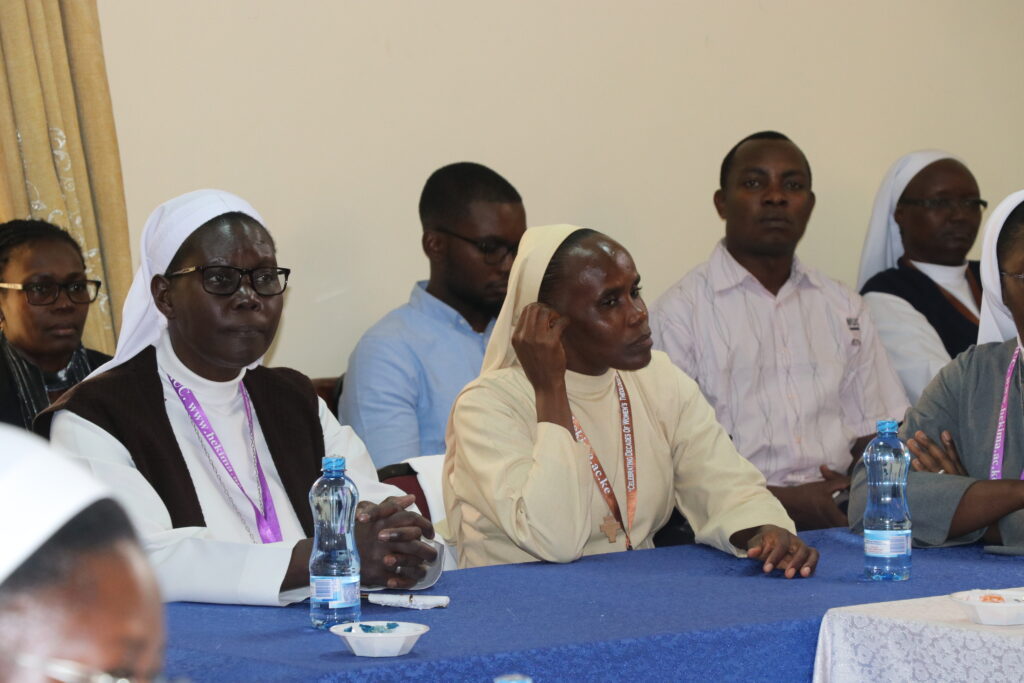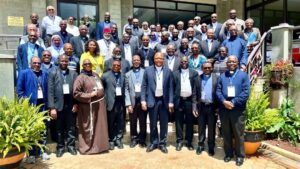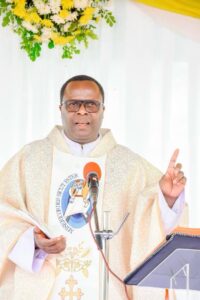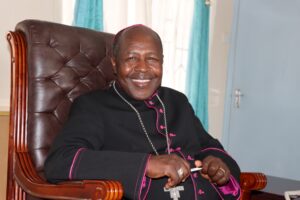KENYA: Women Conference Calls for an Engaging Synodal Church

A section of Participants at Hekima
Sr. Jecinter Antoinette Okoth, FSSA
The research papers presented by theologians at the International Conference on African Women Theologians convened by Hekima University College (HUC) from 7th to 10th March, in Nairobi, have called upon the Church to walk the talk, embrace inclusivity and ensure the ongoing synodal journey is engaging not theoretical.
Participants during the four-day conference presented papers on various thematic areas including systematic theology and synodality, Canon Law and Synodality, Church and Synodality, Bible and Synodality, Peace Building and Synodality, and Pastoral Theology, and Synodality.
The affiliate college of the Catholic University of Eastern Africa (CUEA) organized the conference as part of its activity to mark 40 years of existence, celebrate its contributions to women’s theological empowerment, and make the voices of African women theologians louder in theological discourses and at the same time re-affirm its commitment to educating women theologians.
In her presentation, Saturday, March 9, Sr. Cynthia Emeka a pastoral theologian and doctoral candidate at CUEA, highlighted that “The Church needs to have a comprehensive understanding of synodality that goes beyond theoretical discussions to actively engage with and transform the lives of members of the family of God at the fringes.”
The member of the Daughters of Divine Love (DDL) congregation in her presentation ‘Accompaniment to those at the peripheries; towards advancing the pastoral dynamism of synodality,’ disclosed that the synodal journey calls for “a compassionate presence” especially to the marginalized voices.
“The interaction between and among people has radically changed and negatively impacted a genuine commitment to accompaniment hence the need for active engagement with marginalized communities and reciprocal relationships to bring about holistic transformation,” she said.
On her part, Ms. Nora Kofognotera Nonterah a theological and comparative ethicist pointed out that the aspect of co-responsibility seems to be at the centre of Synod on synodality.
While narrating the women’s role in the synodal journey and their contribution to the spirit of co-responsibility for the evangelizing mission of the Church, the lecturer at the Religious Studies Department of Kwame Nkrumah University of Science and Technology (KNUST), Kumasi, Ghana said that “the current leadership model of the Church needs to be reimagined to allow for inclusivity grounded in Sacramental Theology and imagination.”
Addressing over 50 participants during the same conference, Sr. Henriette Anne Owino a member of the Franciscan Sisters of St. Anna (FSSA) told the women theologians that media platform is the space where their unique voices can be heard to help “shape the narrative of synodality.”
Referencing the Vatican document published last year “Towards Full Presence, a Pastoral Reflection on Engagement with Social Media,” the social communicator reminded the women participants to confidently delve into the digital world and make contributions that will have lasting impact.
Even though digital media has its challenges, the Kenyan nun said, engaging with these platforms respectfully, genuinely, and caring about one another as we promote communion, participation, and mission, digital media can be a great tool for use to contribute towards synodal engagement in the Church.
Speaking on the concept of listening as a pre-requisite for an effective synodality, Sr. Mary Jerome Obiorah noted that listening to God entails understanding his Word in Scripture and Tradition lest “we remain incomplete if we do not listen to human beings.”
“If listening as a thematic nucleus of every synod is fully understood, synod in all its processes will naturally lead to deepening of the Catholic faith,” the member of the Immaculate Heart of Mary (IHM) narrated to participants and concluded, “Authentic interpretation of God’s word should be the priority of all biblical scholars, who ought to present the findings of their academic research in a simplified manner.”


